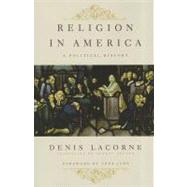- ISBN: 9780231151009 | 0231151004
- Cover: Hardcover
- Copyright: 8/16/2011
America is unique in that its political institutions preceded the development of a national identity. The American Revolution and drafting of the constitution did not deepen a preexisting national self. Rather, it created a new political framework to which the "walls" of culture, particularly references to a distant past, were later added. Revisiting this moment in American history and the nation's early efforts at identity, Denis Lacorne identifies two competing narratives drawn from a reformulation of America's past, present, and future. The first narrative, derived from the philosophy of the Enlightenment, is essentially secular. Associated with the Founding Fathers and reflected in the Declaration of Independence, the Constitution, and the Federalist Papers, it is predicated on separating religion from politics to preserve political freedom from an overpowering church. Prominent thinkers such as Voltaire, Thomas Paine, and Jean-Nicolas D#xE9;meunier, who viewed the American project as a radical attempt to create a new regime free from religion and the weight of ancient history, embraced the American effort to establish a genuine "wall of separation" between church and state. The second narrative casts national identity as the outcome of a progression toward freedom, beginning with the Reformation and culminating with the colonies of Puritan New England. This alternative vision was adopted by Whig politicians and romantic historians, yet still persists among political scientists such as Samuel Huntington. These thinkers insist that America has a core, stable "American creed" based on a mix of Protestant and republican values. Lacorne outlines the role of religion in the making of these narratives and examines, against this background, how key historians, philosophers, novelists, and intellectuals situate religion in American politics.







